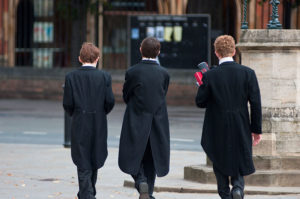Arabella Davis is an expert at helping children do their best under the microscope of school assessment days and interviews. Alongside this work she also researches schools for the annual Tatler Schools Guide. Here she offers sensible advice on how to get your little ones ready for their big day.
Whether your child is sitting pre-tests or attending open days at future schools it doesn’t matter whether it is for 8+ 11+ or 13+, most schools are looking for happy, hardworking, confident children who appear interesting and interested and who are seen to want to give anything a go.
Schools do not like to see “over-coached” youngsters – this only makes for increased anxiety all round. They are looking to see the true individual. However I do believe that some sensible preparation before the day itself can go a very long way to increasing their overall confidence. So here is how you as parents can prepare them for this all-important occasion.
What to expect at these pre-tests and open days
In addition to academic testing, some schools use group assessment as well as an individual interview to make their choice and for many of your children this will be the first time they have had ever had a formal interview. Ask them the question: “Why do you think they are bothering to meet you and have a chat with you?” Answer: “To find out if they like you, of course.” It’s not rocket science but your job is now to make sure your child does everything in their power to make their future school like him/her at the interview. This obviously includes that all important first impression, the firm handshake, maintaining good eye contact and, of course, smiling for the whole day!
Fun, fun, fun…
Make the run-up to the day as fun as possible. They are missing half a day, or even a full day, of school after all. Remember – whatever the outcome your child will spend some very happy years at a sensational school even if it may not have been your original first choice.
Sensible preparation
With a bit of groundwork you can not only ease any anxiety they may have in advance of the assessment but also take away the element of surprise, which can often flummox a youngster. By allowing them to think about the types of questions that may be asked you can increase their confidence, and give them the tools to answer a question they weren’t expecting, even if they think they don’t know the answer.
Research the school
If you were going for a job interview you would make sure you knew as much as you could about the company you were visiting. The same applies with a school. Make sure your child knows as much as he/she can about his/her future school including the name of the Headmaster/mistress.
It’s all on the website
Allow them time to really get to know the school’s website. Find some areas of interest to them such as music, drama, sport, etc. Ask them questions about what they thought about the website and what was exciting about the school and why they might want to go there.
Hobbies & interests
Get your child to think about their favourite subjects and sports and why they like them and remind them to tell their future school that they hope to do well in those subjects and sports when they get there, as well as how they hope to join the choir, play the violin, or whatever else your child enjoys doing in and out of school. They also need to think about significant achievements so far in their school life. Simple things like coming top in a Geography test is as important as being picked for the county tennis team!
Here are a few Q&A guidelines
If English is a favourite subject?
What do you most like about English?
Do you prefer creative writing or reading comprehension?
Who is your favourite author?
Which book are you reading at the moment (in class and at home)?
What’s the best book you have ever read?
If History is a favourite subject then:
Which period in history are you currently studying at school?
If you were able to go back in time to any period in history, which period would you choose and why?
If you could meet any historical figure? Who would it be and what would you ask them?
Other questions that your children could think about
What is your greatest achievement?
When was the best moment in your life so far?
What do you hope to be good at when you arrive at your next school? (List lots of things.)
What do you like doing outside school? (Evenings/weekends/holidays.)
If you could have any superpower which would it be?
If you could invite four people to a dinner party who would you invite?
If you could choose to be any animal which would it be?
If your house caught fire and you had to save three objects which ones would you choose?
Is there a recent news item that has caught your attention?
About the Author: In 2002, following a career in recruitment spanning more than a decade, Arabella Davies set up The Interview Experience Workshop (I.E.W.) which provides motivational skills based workshops, seminars and one-to-one interview preparation for children and students of all ages. As well as acting as an education consultant advising parents in the UK and abroad on their choice of preparatory and secondary schools, within the independent sector, she is also one of the designated researchers writing for The Tatler Schools Guide.
For more information on how to get the best out of a school assessment day contact Arabella Davies or visit www.interviewexperienceworkshop.com.
© Inarik | Dreamstime.com – Kid Creativity Education Concept, Child Learning Art Mathematics Photo




